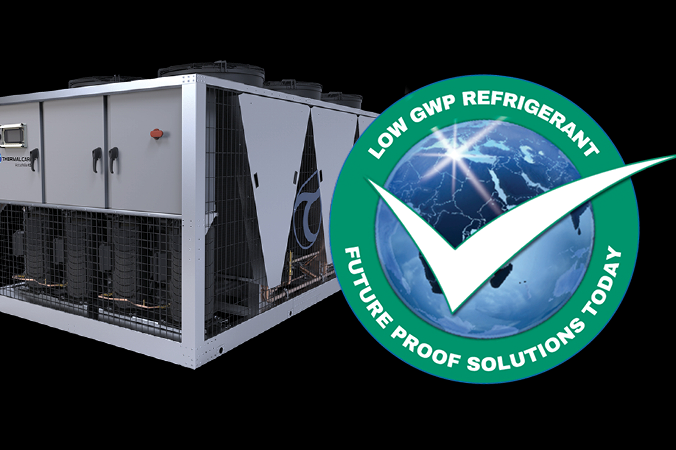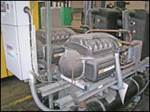Chiller Lines Updated to EPA-Approved Refrigerants
Thermal Care’s chillers now utilize EPA-approved low Global Warming Potential (GWP) R‐454B and R‐513A refrigerants.
Thermal Care’s chillers now utilize EPA-approved low Global Warming Potential (GWP) R‐454B and R‐513A refrigerants, with the company making the switch in advance of legislation that will phase out high‐GWP refrigerants that contribute to climate change.
Thermal Care points out that governments around the world are seeking to phase out refrigerants like R‐134a and R‐410A. An EPA rule proposal states that all high-GWP Hydrofluorocarbons (HFCs), including R134a, R404A and R410A, will be banned in most new refrigeration equipment effective Jan. 1, 2025. In 2024, 12 states will require GWP refrigerants and 11 more are considering it, according to Thermal Care.
Low‐GWP refrigerants have different thermodynamic properties than high‐GWP refrigerants, requiring component changes in equipment such as chillers. Thermal Care says it has researched and prepared for these changes for the past two years beginning to implement multirefrigerant compressors in early 2023. The company says this enables it to offer low‐GWP compliant products now that have the same cooling capacities and physical dimensions as its previous chiller offerings.

Thermal Care’s chillers now utilize EPA-approved low Global Warming Potential (GWP) R‐454B and R‐513A refrigerants. Photo Credit: Thermal Care
Related Content
-
System Offers 'Lights Out' Mold-Channel Cleaning & Diagnostics
New system automatically cleans mold-cooling lines—including conformal channels—removing rust and calcium, among other deposits, while simultaneously testing for leaks, measuring flow rate and applying rust inhibitor.
-
Free Cooling Chiller System Launches
Delta T Systems enters the free cooling space with a line that uses ambient air to cool the process fluid.
-
Is Your Water System Setup Helping or Hurting Your Molding Plant Productivity?
The plant water system is a critical component of an injection molding facility. A poorly designed or maintained water-cooling system can have a serious impact on production efficiency and cause many maintenance issues. Here’s what you need to know — and ask — to prevent those problems.












